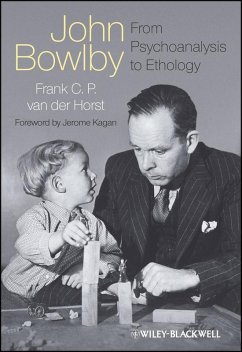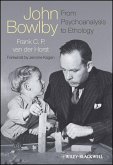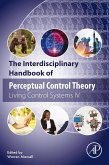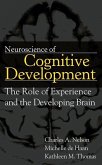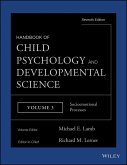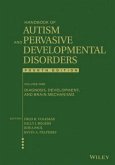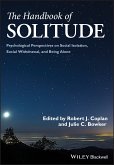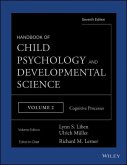Dieser Download kann aus rechtlichen Gründen nur mit Rechnungsadresse in A, B, BG, CY, CZ, D, DK, EW, E, FIN, F, GR, HR, H, IRL, I, LT, L, LR, M, NL, PL, P, R, S, SLO, SK ausgeliefert werden.
"Overall, this book, although somewhat cost-prohibitive,does a very good job of helping to contextualize the development ofattachment theory and would be useful reading for both cliniciansand researchers at all levels of understanding regarding attachmenttheory. I agree with Jerome Kagan that this is a''coherent, gracefully written, even-handed, and richlydetailed description." (Journal of Marital andFamily Therapy, 1 October 2012)
"Nonetheless, for those interested in the history ofpsychology, and attachment theory in particular, I recommend JohnBowlby: From Psychoanalysis to Ethology for what it tells us aboutthe origins of attachment and John Bowlby's courageousforging of attachment theory." (PsycCRITIQUES, 2May 2012)
"... (this book)does a very good job of helping to contextualizethe development of attachment theory and would be useful readingfor both clinicians and researchers at all levels of understandingregarding attachment theory. I agree with Jerome Kagan that this isa "coherent, gracefully written, even-handed, and richly detaileddescription"." (Journal Marital and Family Therapy, October2011)Frank van der Horst applies his background in both History andPsychology to unravel the origins of a major developmental theory.What is obvious now is how attachment theory continues to grow andprovide a framework for both research and practice. Less obviousnow is that John Bowlby's theory of the development of achild's tie to mother was revolutionary. This well-writtenvolume focuses on those crucial years when Bowlby discoveredEthology. He wove its concepts into extensive clinical observationsto provide an explanation for long-lasting effects of maternalcare, including separation. This volume sets the development ofBowlby's thinking within the context of his whole life, toprovide a coherent account of how a dedicated clinician came todevelop an influential theory of human emotional development, fromthe cradle to the grave.
--Dr. Joan Stevenson-Hinde, Senior ResearchFellow, Sub-Department of Animal Behaviour, Department of Zoology,University of Cambridge, UK
This volume provides invaluable insights for anyone interestedin the origins of attachment theory. No previous publicationdescribes Bowlby's integrative approach to theory-building(particularly the process of reworking psychoanalytic concepts inlight of ethology) with the same depth. Also central are detailedanalyses of the historical and institutional context within whichBowlby's ideas developed and incisive accounts, based onpreviously unpublished letters and interviews, of his intellectualinterchanges and personal relationships with major figures andcolleagues.
--Inge Bretherton, Professor Emerita,Department of Human Development and Family Studies, University ofWisconsin-Madison, USA

